
This article is an excerpt from our book
Parashat Kedoshim
Verses: 64 [Siman:מי זהב ]
Haftorah:[1] Ezekiel 20:2-20
| Number of Mitzvot:
There are a total of 51 Mitzvot in Parashat Kedoshim; 13 positive commands and 38 negative commands. The following are the commands in the chronological order that they are brought in the Portion.
A. Positive: 1. Mitzvah 212; Positive 92: To fear one’s mother and father. 2. Mitzvah 216; Positive 93: To leave the corner of one’s field to the poor [i.e. Peiah] 3. Mitzvah 218; Positive 94: To leave Leket, which are the bundles that fall to the ground during harvest, to the poor. 4. Mitzvah 220; Positive 95: To leave a corner or Olalaos [i.e. small grapes not in clusters] of the vineyard to the poor.[2] 5. Mitzvah 222; Positive 96: To leave the Peret of the vineyard to the poor. This refers to the grapes that fall during harvest. 6. Mitzvah 235; Positive 97: To judge justifiably and not honor one side of the case more than the other. 7. Mitzvah 239; Positive 98: To rebuke a sinner 8. Mitzvah 243; Positive 99: To love a fellow Jew. 9. Mitzvah 247; Positive 100: To eat the fruit of the fourth year of the tree in Jerusalem [i.e. Neta Rivaiy] 10. Mitzvah 254; Positive 101: To fear the Temple. 11. Mitzvah 257; Positive 102: To honor the Sages and elders and stand for them. 12. Mitzvah 259; Positive 103: To have honest weights and measurements. 13. Mitzvah 261; Positive 104: To burn one who is liable for the capital punishment of burning. B. Negative: 1. Mitzvah 213; Negative 121: Not to pursue idolatry in neither thought, speech, or even sight. 2. Mitzvah 214; Negative 122: Not to make idols for oneself or for other people.[3] 3. Mitzvah 215; Negative 123: Not to eat Nosar, the leftover meat of offerings that has passed its Halachic expiration date. 4. Mitzvah 217; Negative 124: Not to harvest the entire field and rather leave the corner of the field for the poor. 5. Negative 219; Negative 125: Not to take the bundles that fall to the field during harvest, but rather to leave them to the poor. 6. Negative 221; Negative 126: Not to take all the grapes off the vine and rather to leave the corner/Olalos to the poor.[4] 7. Negative 223; Negative 127: Not to take the Peret of the vineyard, but rather to leave it for the poor. 8. Negative 224; Negative 128: Not to steal any money or item. 9. Negative 225; Negative 129: Not to deny having another’s money in one’s possession. 10. Negative 226; Negative 130: Not to swear falsely regarding money that one owes. 11. Negative 227; Negative 131: Not to swear falsely. 12. Mitzvah 228; Negative 132: Not to withhold money that belongs to another. 13. Mitzvah 229; Negative 133: Not to rob a person. 14. Mitzvah 230; Negative 134: Not to delay the payment of a worker. 15. Mitzvah 231; Negative 135: Not to curse any Jew. 16. Mitzvah 232; Negative 136: Not to place a stumbling block [i.e. bad advice] in front of a person. 17. Mitzvah 233; Negative 137: Not to judge unjustifiably, contrary to Torah law. 18. Mitzvah 234; Negative 138: For a judge not to honor one of the sides during the judgment. 19. Mitzvah 236; Negative 139: Not to slander [i.e. Rechilus/Lashon Hara]. 20. Mitzvah 237; Negative 140: Not to standby when Jewish blood is spilled but rather to help save him. 21. Mitzvah 238; Negative 141: Not to hate a fellow Jew in one’s heart. 22. Mitzvah 240; Negative 142: Not to embarrass a fellow Jew. 23. Mitzvah 241; Negative 143: Not to take revenge from a Jew. 24. Mitzvah 242; Negative 144: Not to hold a grudge against a Jew. 25. Mitzvah 244; Negative 145: Not to mate two different species of animals. 26. Mitzvah 245; Negative 146: Not to plant two different species of seeds together in Israel. 27. Mitzvah 246; Negative 147: Not to eat Arla fruits, which are fruits within three years of planting. 28. Mitzvah 248; Negative 148: Not to eat and drink like a glutton 29. Mitzvah 253; Negative 149: Not to do Nechisha, which is to follow superstitious signs. 30. Mitzvah 250; Negative 150: Not to do Onen, which is to follow superstitious times or to do magic tricks. 31. Mitzvah 251; Negative 151: Not to shave the corners of the head [i.e. Peios]. 32. Mitzvah 252; Negative 152: Not to shave the corners of the beard. 33. Mitzvah 253; Negative 153: Not to make a tattoo on one’s skin. 34. Mitzvah 255; Negative 154: Not to do the sorcery of Ov or pursue them. 35. Mitzvah 256; Negative 155: Not to do the sorcery of Yidoni. 36. Mitzvah 258; Negative 156: Not to use dishonest measurements and weights in your sales 37. Mitzvah 260; Negative 157: Not to curse one’s father or mother. 38. Mitzvah 262; Negative 158: Not to go in the paths of the gentiles. |
Chapter 19
First Aliyah
- List of Mitzvot:
G-d spoke to Moses saying, tell the Jewish people the following commands:
- Be Holy, as I am holy.
- Fear your father and mother.
- Guard Shabbat.
- Don’t go after idolatry and don’t make idols.
- Sacrifices: When you sacrifice a Shelamim offering to G-d, do so with proper thoughts to appease G-d. Eat the meat of the sacrifice that day and the next day, and any leftover on the 3rd day is to be burnt. Don’t eat any leftover [i.e. Nosar]. One who eats the meat on the 3rd day [i.e. Nosar] receives excision as he has defiled the sacred to G-d, and his soul shall therefore be cut off from its people.
- Harvest: When you harvest your field do not to take the corner of the field. Do not take the Leket, the fallen stalks, of the field. Do not take the Olalos [young grapes] of your vineyard. Do not to take the Peret [fallen grapes] of the vineyard. Rather, it is to be left to the poor and converts.
- Stealing: Do not steal [discreetly]. Do not deny money that you owe to your friend. Do not swear falsely on money that you owe. Do not to swear falsely using My name. One who does so has desecrated the name of G-d. Do not cheat your friend [by withholding his wages]. Do not rob a person. Do not delay the payment of a worker past morning.
- Do not curse the deaf.
- Do not place a stumbling block in front of the blind.
- Fear G-d.
Second Aliyah (Fifth Aliyah when connected to Acharei Mot)
- Justice: Do not do injustice. Do not favor a poor man and do not honor a great man in judgment. Judge your fellow righteously.
- Between man and friend: Do not speak Lashon Hara. Do not standby when Jewish blood is being spilled. Do not hate a fellow Jew in your heart. Reproof a sinner, although do not carry sin in the process [by embarrassing a fellow Jew]. Do not take revenge and do not hold a grudge against a member of your people. Love your friend as yourself.
- Mix breeds: Do not mate two different species of animals. Do not plant two different species of seeds together. Do not wear a garment of wool and linen [i.e. Shatnez].
- Relations with a half freed maidservant [Shifcha Charufa]: One who sleeps with a Shifcha Charufa, who is a female slave who has not been [fully] redeemed who belongs to another man, is not to be killed. He is to bring a ram as an Asham offering to G-d, to the Temple. The Kohen is to atone for him with the Asham ram for his sin, and he is to be forgiven.
Third Aliyah
- Mitzvah of Orlah and Neta Rivai fruits: When the Jewish people come to Israel and you plant fruit trees, the fruits of the first three years are Orlah and are forbidden to be eaten. In the fourth year the fruits are to be Kodesh Hilulim, fruits of praise for G-d. In the fifth year you may eat the fruit. The above Mitzvah was given to increase your crop.
- Don’t eat over the blood [of a sacrifice, meaning before its blood is sprinkled].
- Avoiding the ways of idolaters: Do not practice Nechisha/divination. Do not believe in superstitious times. Do not shave the corners of the head. Do not shave the corners of the beard. Do not cut your skin in mourning. Do not make a tattoo on your skin.
- Don’t give your daughter over to prostitution lest the earth be filled with promiscuity.
- Observe the Shabbat.
- Revere the Temple (by not entering with his staff, shoes, or belt).
- Do not turn to the actions of the Ovos and Yidonim [i.e. necromancy]. Do not seek to become impure through them. I am G-d your G-d.
- Stand up for an old person and honor the Sages.
- Fear your G-d. I am G-d.
Fourth Aliyah (Sixth Aliyah when connected to Acharei Mot)
- Converts: Do not oppress the converts. The convert is to be like any other Jew. You shall love the convert as you love yourself as you were also converts in the land of Egypt
- Honesty in business: Do not be dishonest in business. You are to have honest weight stones and scales. I am G-d who took you out of Egypt.
- You are to guard all my commands and judgments. I am G-d.
Chapter 20
Fifth Aliyah
- Punishment of Molech idolatry:
- G-d spoke to Moses saying: Tell the Jewish people that if anyone gives their child to Molech they will die. They will be stoned to death by the people. The man will be cut off from his nation as he gave his child to Molech in order to defile my Temple and desecrate my name. If the people will ignore the man and ignore giving him his due punishment, I myself will cut off him and his family, as well as all the other followers of Molech.
- List of punishments for sins:
- One who turns to the necromancy of the Ov or Yidoni and follows them, will be cut off from his nation. You are to be holy as I am G-d your G-d.
Sixth Aliyah (Seventh Aliyah when connected to Acharei Mot)
- You are to guard my commands and perform them, I am G-d your G-d.
- One who curses his father and mother is to be put to death.
- Punishments for adultery and incest: One who sleeps with a married woman, both are to be put to death.
- One who sleeps with his father’s wife has revealed his father’s Erva [i.e. intercourse], both are to be put to death.
- One who sleeps with his daughter in-law has done Tevel/perversion and both are to be put to death.
- One who sleeps with a male has done an abomination, both are to be put to death.
- One who sleeps with his mother in-law has done Zima/depravity, they are to be put to death.
- A man who sleeps with an animal both are to be put to death.
- A woman who sleeps with an animal, both are to be put to death.
- One who sleeps with his sister has done a disgrace. Both will be cut off from their nation, as he has revealed his sisters Erva.
- One who sleeps with a Niddah, if he has performed Hearah [penetration], both will be cut off from their nation.
- One may not sleep with his aunt, and if they do so they will carry their sin. If one sleeps with his aunt, they will both die without children.
- One who sleeps with his brother’s wife has committed Niddah, an offense, and both will die childless.
- One is to guard all of My commandments and perform them and in this way the land of Israel will not repel you.
Seventh Aliyah
- Final Mitzvot and tidings:
- Not to follow the ways of the gentiles: Do not walk in the statutes of the gentiles, as I have despised them. I have inherited their lands to you, a land of milk and honey. I am G-d your G-d who has separated you from the nations.
- Kashrut dietary laws: You shall distinguish between the pure and impure animals and birds. You shall not defile your souls with eating these forbidden animals and birds and the creeping creatures. You are to be holy to me as I am holy and I have separated you from the nations so you be mine.
- Ov and Yidoni: A man or woman who is an Ov or Yidoni sorcerer will be killed through stoning.
Parashat Emor
Verses: 124 [Siman:עוזיאל ]
Haftorah Ezekiel 44:15-31
| Number of Mitzvot:
There are a total of 63 Mitzvot in Parashat Emor; 23 positive commands and 40 negative commands. The following are the commands in the chronological order that they are brought in the Portion.
A. Positive: 1. Mitzvah 264; Positive 105: For a Kohen to impurify himself to specific relatives. 2. Mitzvah 269; Positive 106: To sanctify the descendants of Aaron the Kohanim and treat them with the stature of priesthood. 3. Mitzvah 272; Positive 107: For a Kohen Gadol to marry a virgin. 4. Mitzvah 293; Positive 109: For the animal used as a sacrifice to be at least eight days old. 5. Mitzvah 296; Positive 110: To sanctify G-d’s name and give up one’s life for his name. 6. Mitzvah 297; Positive 111: To rest from labor on the first day of Pesach. 7. Mitzvah 299; Positive 112: To bring a Musaf offering on each of the seven days of Pesach. 8. Mitzvah 300; Positive 113: To rest from labor on the seventh day of Pesach. 9. Mitzvah 302; Positive 114: To bring the Omer offering on the 2nd day of Pesach. 10. Mitzvah 306; Positive 115: To count 49 days from when the Omer if offered. 11. Mitzvah 307; Positive 116: To bring on Shavuot the two loaf Chametz offering from new wheat. 12. Mitzvah 308; Positive 117: To rest from work on Shavuot. 13. Mitzvah 310; Positive 118: To rest from non-food related work on the 1st of Tishreiy [i.e. Rosh Hashanah]. 14. Mitzvah 312; Positive 119: To bring a Musaf offering on Rosh Hashanah. 15. Mitzvah 313; Positive 120: To fast on Yom Kippur. 16. Mitzvah 314; Positive 121: To bring a Musaf offering on Yom Kippur. 17. Mitzvah 317; Positive 122: To rest from all work on Yom Kippur. 18. Mitzvah 318; Positive 123: To rest from non-food related work on the first days of Sukkot. 19. Mitzvah 320; Positive 124: To bring a Musaf offering each day of Sukkot. 20. Mitzvah 321; Positive 125: To rest from non-food related work on the 8th day of Sukkot. 21. Mitzvah 322; Positive 126: To bring a Musaf offering on the 8th day of Sukkot. 22. Mitzvah 324; Positive 127: To shake Lulav and 4 Minim on the first day of Sukkot. 23. Mitzvah 325; Positive 128: To dwell in a Sukkah for seven days.
B. Negative: 1. Mitzvah 263; Negative 159: For a Kohen not to impurify himself with a corpse. 2. Mitzvah 265; Negative 160: The prohibition for a Kohen Tevul Yom to serve in the Temple. 3. Mitzvah 266; Negative 161: For a Kohen not to marry a Zonah. 4. Mitzvah 267; Negative 162: For a Kohen not to marry a Challalah. 5. Mitzvah 268; Negative 163: For a Kohen not to marry a divorcee. 6. Mitzvah 270; Negative 164: For a Kohen not to enter into a house that contains a corpse. 7. Mitzvah 271; Negative 165: For a Kohen Gadol not to impurify himself to any corpse, even a relative. 8. Mitzvah 273; Negative 166: For a Kohen Gadol not to marry a widow. 9. Mitzvah 274; Negative 167: For a Kohen Gadol not to have relations with a widow. 10. Mitzvah 275; Negative 168: For a Kohen with a blemish not to serve in the Temple. 11. Mitzvah 276; Negative 169: For a Kohen with a passing blemish not to serve in the Temple. 12. Mitzvah 277; Negative 170: For a Kohen with a blemish not to enter the Heichal. 13. Mitzvah 278; Negative 171: For an impure Kohen not to serve in the Temple. 14. Mitzvah 279; Negative 172: For an impure Kohen not to eat Teruma. 15. Mitzvah 280; Negative 173: For a non-Kohen not to eat Teruma. 16. Mitzvah 281; Negative 174: For a gentile who is the Toshev and Sachir [i.e. worker] of a Kohen not to eat offerings. 17. Mitzvah 282; Negative 175: For a Kohen who is an Aral not to eat Teruma 18. Mitzvah 283; Negative 176: For a Challal not to eat offerings. 19. Mitzvah 284; Negative 177: Not to eat Tevel [untithed produce]. 20. Mitzvah 285; Negative 178: Not to sanctify a blemished animal to the altar. 21. Mitzvah 287; Negative 179: Not to blemish an offering. 22. Mitzvah 288; Negative 180: Not to throw the blood of a blemished offering onto the altar. 23. Mitzvah 289; Negative 181: Not to slaughter an animal with a blemish as a offering. 24. Mitzvah 290; Negative 182: Not to offer the limbs of a offering which is blemished. 25. Mitzvah 291; Negative 183: Not to castrate an animal, or human, or fowl. 26. Mitzvah 292; Negative 184: Not to offer a blemished offering that belongs to a gentile. 27. Mitzvah 294; Negative 185: Not to slaughter an animal and her offspring on the same day. 28. Mitzvah 295; Negative 186: Not to desecrate G-d’s name. 29. Mitzvah 298; Negative 187: Not to do labor on first day of Pesach. 30. Mitzvah 301; Negative 188: Not to do labor on seventh day of Pesach. 31. Mitzvah 303; Negative 189: Not to eat Chadash grains before the 16th of Nissan. 32. Mitzvah 304; Negative 190: Not to eat Chadash roasted kernels before the 16th of Nissan. 33. Mitzvah 305; Negative 191: Not to eat Chadash Karmel, which are stalks of roasted grains, before the 16th of Nissan. 34. Mitzvah 309; Negative 192: Not to do labor on Shavuot. 35. Mitzvah 310; Positive 118: To rest from non-food related work on the 1st of Tishreiy [i.e. Rosh Hashanah]. 36. Mitzvah 311; Negative 193: Not to do non-food related labor on first day of Tishreiy [i.e. Rosh Hashanah]. 37. Mitzvah 315; Negative 194: Not to do any labor on Yom Kippur. 38. Mitzvah 316; Negative 195: Not to eat or drink on Yom Kippur. 39. Mitzvah 319; Negative 196: Not to do non-food related labor on first day of Sukkot. 40. Mitzvah 323; Negative 197: Not to do labor on eighth day of Sukkot. |
Chapter 21
First Aliyah
- Mitzvot of Kohanim:
- G-d told Moses to tell the Kohanim, the sons of Aaron the following laws relating to the Kehuna:
- Impurity to corpse: The Kohanim may not become impure to a corpse, with exception to a relative. A Kohen may become impure to his mother, father, son, daughter, brother, and his virgin sister who was never yet married. A husband may not become impure to his [forbidden] wife.
- Cutting skin/beard: They may not cut their skin, or heads, or shave their beards.
- The Kohanim must adhere to extra standards of Holiness, being that they serve G-d in the Temple.
- Marriage: Kohanim may not marry a divorcee, Chalalah, or Zona because they are holy.
- If the daughter of a Kohen commits adultery, she is to be burnt.
- Kohen Gadol: The Kohen Gadol may not grow out his hair or tear his clothing [in mourning]. He may not become impure even to relatives. He may not leave the Temple. The Kohen Gadol must marry a virgin.
Second Aliyah
- Kohen with a blemish:
- A Kohen with a blemish is invalid to serve in the Temple. He may however eat from the offerings.
- The following matters are defined as a blemish:
- One who is blind
- One who is lame
- One who is disfigured
- One who has an enlarged limb
- One who has a broken leg
- One who has a broken arm
- Eye dysfunctions or disfigurations, such as unusual eyebrows, or a cataract, or a mixing in his eye
- One who has a Garav or Yalefes (different types of boils)
- One who has crushed testicles.
- The Kohanim are warned not to desecrate the offerings of the Jewish people.
Chapter 22
- Impure Kohen:
- A Kohen who offers an offering in a state of impurity receives excision.
- If a Kohen is impure due to Tzara’at or Zav, he may not eat offerings until he becomes pure.
- One who touches one who is impure due to a corpse, or impure due to semen, or due to touching a creeping animal [i.e. a Sheretz], or an impure person, is considered impure and may not eat offerings until he immerses his flesh in a Mikveh. Only after the sun sets may he eat the offerings.
- He may not eat a carcass or Treifa to become impure.
- Non-Kohen eating offerings:
- A non-Kohen may not eat the offerings, including the worker of a Kohen. However, the slave and the members of the household of a Kohen may eat offerings.
- Kohenes: The daughter of a Kohen may not eat offerings if she marries a non-Kohen. If she gets divorced or widowed, and does not have children from him, she may eat offerings.
- If a non-Kohen ate offerings: If a non-Kohen accidently ate offerings, he must pay a fine of 120% its value to the Kohen.
Third Aliyah
- Laws of Sacrifices:
- An Olah voluntary offering: Any Jew may volunteer to bring a voluntary Olah offering to G-d. It is to be an unblemished male, either a male cow, sheep or goat. The offering may not have a blemish.
- Blemishes: The following matters are defined as a blemish:
- The animal is blind
- The animal is broken
- The animal has a cut eyelid
- The animal has a wart.
- The animal has a limp
- The animal has an enlarged limb.
- The animal has crushed or destroyed reproduction organs.
- It is forbidden to castrate any animal.
- You shall not take an offering from a stranger, it will likely have a blemish.
- Slaughtering after 8 days: When an ox, sheep, or goat, gives birth, the baby is to be with its mother for seven days. The animal may be offered from the 8th day and onwards.
- Mother and child: One may not slaughter a mother and child of an ox or sheep on the same day.
- Leftovers: One may not leave the meat of the offering over until morning.
- Mitzvah of Kiddush G-d:
- Do not desecrate G-d’s name, and you are to sanctify G-d amongst the Jewish people.
Chapter 23
Fourth Aliyah
- The Moadim-Jewish Holidays:
- G-d spoke to Moses saying, tell the Jewish people that these are my festivals which are to be a calling of holiness:
- Shabbat: One is to work for six days and on the seventh day it is a complete day of rest. It is a calling of Holiness; one is not to do any work in all your settled places.
- Pesach: On the 14th of Nissan, it is a Pesach for G-d [and a offering is to be brought]. On the 15th of the month, it is festival of Matzot for G-d. Matzot are to be eaten for seven days. One may not do any laborous work on the first day and seventh day. Sacrifices are to be brought throughout the seven days.
- Omer offering: After entering Israel and harvesting the land, the Omer, which is the first of the harvest season, is to be brought to the Kohen. The Omer is to be waved before G-d on the 16th of Nissan. On that day of the waving, an unblemished sheep is to be offered to G-d as an Olah. Its Mincha of two tenth-ephahs of fine flour mixed with oil and its Nesachim [i.e. poured-offering] of ¼ of a Hin of wine is to accompany the offering.
- Chadash: One may not eat the new bread, parched grain, and plumped grain, until the Omer offering is brought.
- Sefirat Haomer: Count for yourselves seven weeks starting from when the Omer is offered. Count for 50 days.
- Shavuot Sacrifices: On the 50th day of count, a new Mincha is to be offered. From your settlements you are to bring two breads of elevation, made from Chametz, each bread is made of two tenth-ephahs of flour. It is a Bikurim to G-d. It is to be accompanied by seven unblemished lambs in their first year, one young male calf, and two rams as an Olah. A single goat is to be brought as a Chatas, as well as two lambs of a year old as a Shelamim. The Kohen is to waive the two sheep upon the bread Bikurim, a waving before G-d. That day is to be a day of Holiness. No laborious work may be done as a law for all generations.
- Mitzvah of leaving produce for the pour [Leket, Shichicha, Peia]: Upon harvesting the field, one is not to completely remove the corner of the field and the Leket of your harvest is not to be gathered. It is to be left to the poor and the converts.
Fifth Aliyah
- Rosh Hashanah: On the first of the seventh month [i.e. Tishreiy] one is to rest, it is to be a day of remembrance of the Shofar, a calling of holiness. One is not to perform any laborious activity, and Sacrifices are to be brought before G-d.
- Yom Kippur: The 10th day of the month is a day of atonement. It is a day of holiness for you and you shall oppress your soul and bring an offering to G-d. You shall not perform any work on this day, as it is a day of atonement for G-d to atone for you. Any soul who does not fast on this very day will be cut off from his people. Any soul who performs labor on this day, I will destroy him from amongst his people. One may not do any work for all generations, in all your settlements. It is a day of complete rest, and you shall afflict your souls. On the ninth of the month, from evening to evening, you shall rest on that day.
Sixth Aliyah
- Sukkot-Sacrifices and labor: On the 15th day of the seventh month is the seven-day Sukkot Holiday. One may not perform laborious work on the 1st or 8th You are to bring an offering for seven days. On the eighth day, it is to be a call of Holiness for you and you shall bring an offering to G-d. It is an Atzeres, all laborious activity may not be performed. These are the Holidays of G-d which are to be called a calling of holiness to bring sacrifices to G-d, Mincha, and Nesachim, each day’s requirement on its day. This is aside for the Shabbasos of G-d, and one’s voluntary offerings which are given to G-d. On the 15th day, which is when you gather the grain, you are to celebrate the festival for seven days, on the first day you shall rest and on the eight day you shall rest.
- Daled Minim: You shall take for yourselves on the first day [of Sukkot] a beautiful fruit [i.e. Etrog], the date palm branch [i.e. Lulav], branches of a cordlike tree [i.e. Hadas] and willows of a river [i.e. Aravot] and rejoice before G-d your G-d for seven days. You are to celebrate the festival for G-d seven days a year for all generation, during the seventh month.
- Sukkah dwelling: One is to dwell in the Sukkah for seven days. Every native of Israel is to dwell in the Sukkah so that all your generations will know that I caused the Jewish people to dwell in Sukkot when I took them out of Egypt.
- Moses told the Jewish people of all the Holidays of G-d.
Chapter 24
Seventh Aliyah
- Lighting the Menorah:
- G-d told Moses to command the Jewish people to bring to him clear crushed olive oil for the sake of illumination, to light the eternal candle [i.e. the Menorah]. It is to be lit outside the Parochet curtain in the Tent of Meeting. Aaron is to light it from evening to morning before G-d continuously for all generations. The candles are to be set up on the pure Menorah, before G-d constantly.
- The Showbread:
- You are to take fine flour and bake twelve breads from it, each Challah being two tenth-ephahs. They are to be organized in two stacks, six in each stack, on the pure table that is before G-d. Pure frankincense is to be placed on the stack and it shall be a bread of remembrance for G-d. The Showbread is to be organized weekly from Shabbat to Shabbat before G-d continuously, as an everlasting covenant. The bread is to be distributed to Aaron and his sons and eaten in a holy place, as it is a Holy offering.
- Ish Hamikalel-The man who cursed G-d:
- The curse: A Jewish man, the son of an Egyptian father, but Jewish mother, was involved in an argument with another Jew. His mother’s name was Shlomit Bat Dibri from the tribe of Dan. The Jewish man cursed and blasphemed the name of G-d and was brought before Moses. The man was imprisoned for his actions until further instructions would be received from G-d.
- The punishment: G-d instructed Moses to have the man taken out of the camp, and to have all those who heard the curse lean their hands on his head, and the entire assembly shall stone him. Tell the children of Israel that any man who blasphemes G-d will carry his sin. One who pronounces the name of G-d in a blasphemous way shall be put to death. The entire nation is to stone him.
- The nation did as they were instructed and stoned the man to death outside of the camp.
- Murder and injury:
- Punishment for murder: One who murders another person is to be killed.
- Restitution for killing animal: One who kills an animal is to pay, a life for a life.
- Injuring a friend: One who injures his friend is to have the same done upon him. A break for a break, an eye for an eye, and a tooth for a tooth, as he did to his friend so shall be done to him [that he should pay the value to the injured friend].
Parashat Behar
Verses: 57 [Siman: חטיל]
Haftorah: Jerimiah 32:6-22[5]
Chapter 25
First Aliyah
- The Mitzvah of Shemita/Sabbatical year:
- Resting the land from planting: G-d told Moses on Mount Sinai to tell the Jewish people that when they arrive to the promised land, they are to sow the land for six years and are to rest the land on the seventh year. One may not sow the land on the seventh year, as it is a year of rest for G-d.
- Not to harvest for personal use: In the seventh year one may not harvest the field. The produce of the field shall be food for you, your slaves, and for all who reside with you. It shall also be available for all the animals in your land. [The produce of the fields is to be considered ownerless and allowed to be taken by all people during this year.]
- Mitzvah of the Jubilee year:
- Counting the years: One is to count seven sets of seven years for a total of 49 years. On the 50th year, on Yom Kippur, the Shofar is to be blown throughout all your lands.
- Freeing the slaves: The 50th year is to be sanctified and is to be proclaimed a year of freedom. All lands are to return to their original owner and all slaves are to be set free during this year to return to their homes.
- This 50th year is called the Jubilee year.
- Not to sow or harvest: In the fiftieth year one may not sow or harvest the field. The produce of the field shall be food for you.
Second Aliyah
- Business ethics:
- Overcharge: One may not overcharge or underpay another person in a sale without their knowledge.
- Selling land: The price that the land is to be sold for is to be based on the amount of years remaining until the next Jubilee year. If many years remain until the Jubilee year then it is to be sold for a larger sum, if only a few years remain until the Jubilee year it is to be sold for a smaller sum, as one is not selling the land itself but is leasing it for a certain sum of years.
- Not to offend another Jew:
- One may not verbally harass or offend another Jew using words.
Third Aliyah (Second Aliyah when connected to Bechukotai)
- Sustenance during years of Shemita/Sabbatical year:
- The land will give plentiful of produce and you will eat to satisfaction and dwell securely on it. Now, if you ask “What shall we eat in the 7th year if we cannot sow the land or harvest our grain” I promise you my blessing to support the Jewish people during Shemita/Sabbatical year by making the 6th year grow plenty of produce. You will sow in the 8th year and still eat from the 7th years produce until the new crop arrives in the 9th
- Selling and redeeming ancestral fields:
- A property of ancestral heritage may not be sold eternally, for it belongs to G-d. It is rather to be redeemed.
Fourth Aliyah
- Redeeming: If one becomes poor and sells his plot of ancestral heritage then his relative is to come to his aid and redeem it. If a relative cannot redeem it, and the original owner comes to redeem it, then he is to pay the buyer in accordance to the amount of years remaining towards his lease.
- Returns by the Jubilee year: If he is unable to redeem it, then the property is to remain in the hands of the buyer until the Jubilee year, and in the Jubilee year it is to be returned to its owner.
Fifth Aliyah (Third Aliyah when connected to Bechukotai)
- Selling and redeeming a house:
- Walled city: If a man sells a house that is within a walled city, then it can be redeemed only within the first year of the sale. If it was not redeemed within the first year, it becomes the property of the buyer and remains with him forever, even after the Jubilee year.
- Unwalled city: If, however, the city is unwalled, it may be redeemed until the Jubilee year. If it was not redeemed before the Jubilee year, then when the Jubilee year arrives it is to be returned to its owner.
- Selling and redeeming Levite property:
- Houses of Levites: The houses of Levites found within their cities retain eternal redemption rights by the Levites and they hence may be redeemed at any time. If they are not redeemed they are to be returned to their original Levite owner by the Jubilee year.
- Levite fields: The open fields of the city of the Levites may never be sold, as it is an eternal heritage for them.
- The Mitzvah of Charity and lending money without interest:
- If your brother becomes impoverished, you shall support him so that he can live with you.
- Interest: One is not to collect interest from the loan to the pauper and you shall fear G-d and allow your brother to live with you. Do not lend him money with interest. I am G-d your G-d who took you out of Egypt, to give you the land of Canaan.
Sixth Aliyah (Fourth Aliyah when connected to Bechukotai)
- Slave laws:
- Jewish slave: When your brother is sold to you as a slave do not work him with slave labor. He shall be like a hired laborer or a resident and shall stay with you until the Jubilee year and he is then to return to his family with his sons and to his ancestral heritage. The Jewish people are my slaves who I took out of Egypt. Do not sell them like a slave and do not work them hard. I am G-d your G-d.
- Gentile slave: You shall buy slaves from the surrounding nations, and they shall become for you an ancestral heritage. You shall inherit them to your sons after you. They shall serve you forever.
Seventh Aliyah
- Jewish slave sold to gentile:
- Redeeming the slave: If a Jew becomes impoverished and is sold as a slave to a gentile, he is to be redeemed. It is a Mitzvah upon his relatives, such as his uncle or cousin or other family relative, to redeem him. If the slave himself has the means to do so, then he is to redeem himself. The price for the redemption is to be based on the amount of years remaining until the next Jubilee year. If many years remain until the Jubilee year then he is to be sold for a larger sum, if only a few years remain until the Jubilee year he is to be sold for a smaller sum, as one is not selling the slave himself but is hiring him for a certain sum of years.
- Hard labor: One may not allow the gentile to make the Jewish slave work laborous activity.
- The Jubilee year: If the salve is not redeemed, he is to be set free by the Jubilee year.
- The Jewish people are my slaves who I took out of Egypt.
- Idolatry, statues, and stone floors:
- One may not form idols for himself or build statues and pillars. One may not make stone floors in the land for the sake of prostration.
- Guard the Shabbat and fear the Temple:
- Guard my Shabbatot and revere the Temple, I am G-d.
Parashat Bechukotai
Verses: 78 [Siman: עזא]
Haftorah: Jerimiah 16:19-17:14
| Number of Mitzvot:
There are a total of 12 Mitzvot in Parashat Bechukotai; 7 positive commands and 5 negative commands. The following are the commands in the chronological order that they are brought in the Portion.
A. Positive: 1. Mitzvah 350; Positive 136: To follow the laws of redemption of a human [i.e. Erechin], that one give the worth of a human to Hekdesh if he made a vow to do so. 2. Mitzvah 352; Positive 137: That the exchanged animal be considered holy. 3. Mitzvah 353; Positive 138: To follow the laws of Erechin of an animal, that one gives the worth of an animal to Hekdesh. 4. Mitzvah 354; Positive 139: To follow the laws of Erechin of a house, that one give the worth of the house to Hekdesh. 5. Mitzvah 355; Positive 140: To follow the laws of Erechin of a field, that one gives the worth of the field to Hekdesh. 6. Mitzvah 357; Positive 141: To follow the laws of consecration, that the consecrated property be given to the Kohanim. 7. Mitzvah 360; Positive 142: To tithe one’s animals each year and eat it in Jerusalem.
B. Negative: 1. Mitzvah 351; Negative 215: Not to make an exchange of offerings. 2. Mitzvah 356; Negative 216: Not to change the status of an offering from one type of offering to another type of offering. 3. Mitzvah 358; Negative 217: Not to sell land or objects that was declared as consecration, and rather to give it to the Kohanim. 4. Mitzvah 359; Negative 218: Not to redeem a field of consecration and rather to give it to the Kohanim. 5. Mitzvah 361; Negative 219: Not to sell the tithed animal. |
Chapter 26
First Aliyah
- The Blessings received for obeying G-d’s commands:
- If the Jewish people follow the statutes of G-d and observe His commands, I will bless them with the following blessings:
- Rain at the appropriate time.
- The earth will give produce.
- The trees will grow fruits.
- There will be so much abundance of produce that it will last until the next year’s harvest
- You will eat your bread to satiation [and become satiated with small amounts of food].
- You will dwell securely in your land.
Second Aliyah
- I will provide peace in the land, and you will lie without fear.
- I will remove wild animals from the land.
- A sword [of war] will not pass through your land.
- You will chase your enemies and they will fall before you.
- Five men will chase 100 enemy soldiers and 100 men will chase 10,000 enemy soldiers. Your enemies will fall before you to the sword.
- I will cause you to be fruitful and multiply and establish my covenant with you.
Third Aliyah (Fifth Aliyah if connected to Behar)
- You will still be able to eat from the old fruit when the new harvest arrives.
- I will place my Tabernacle amongst you and will not become disgusted of you. I will walk amongst you and will become a G-d for you and you will become for Me a nation. I am G-d who took you out of Egypt from being slaves. I broke the pegs of your yoke and I led you erect.
- The curses received for disobeying G-d’s commands:
- If you do not listen to Me, do not obey all these commands, despise My statutes, and are repulsed by My laws to break My covenant, then I will do the following to you:
- I will make you panic and make you waste away.
- You will get fever, causing your eyes to sting.
- Your sowing of the seed will be in vain as your enemies will eat your produce.
- You will fall before your enemies and they will rule over you.
- You will flee even though no one is chasing you.
- If you still do not listen to me, I will increase tormenting you in seven ways for your sins:
- I will break your pride.
- I will turn your heavens into iron and your land like copper.
- You will exert your energy in vain as your land will not give off produce and its trees will not give off fruit.
- If you still do not listen to me, I will increase tormenting you in seven ways for your sins:
- I will send wild animals to attack you and bereave you.
- I will exterminate your cattle and diminish you.
- Your roads will be destroyed.
- If despite these you still do not listen to me, I will increase tormenting you in seven ways for your sins:
- I will bring upon you an attack by the sword to avenge my covenant.
- You will gather in your cities and have a plague sent against you.
- You will be delivered to the hands of the enemies.
- I will break for you the staff of your sustenance.
- Ten women will bake bread in one oven and bring the bread back by weight.
- You will eat but not be satiated.
- If despite this you still do not listen to me, I will increase tormenting you in seven ways for your sins:
- You will eat the flesh of your children, the flesh of your sons and daughters.
- Your towers and idols will be destroyed.
- I will pile your carcasses on the carcasses of your idols, and I will despise you.
- I will destroy your cities and Temple.
- I will not smell the scent of your offerings.
- I will make your land desolate from you and your enemies.
- I will disperse you amongst all the nations and empty the sword after you.
- Your cities will be put to ruin.
- Appeasing the Shemita/Sabbatical years: Through the above, the land will become appeased from its Shemita/Sabbatical years, from all its years of desolation. All its days of it being desolate it will rest for whatever it did not rest during the years you dwelled on it.
- The survivors, I will make them paranoid in the lands of their exile. They will flee from the sound of the rustling of a leaf and they will fall without anyone chasing them.
- You will die from the sword of a friend without anyone chasing you.
- You will be unable to overcome your enemies. You will become lost amongst the nations and will be consumed by them.
- You will suffer due to the sins of your forefathers. Then you will confess your sins and the sins of your ancestors due to ignoring my commands. I therefore also treated you with ignorance and brought you to the land of your enemies so that the hardness of your heart become humbled and you will then receive appeasement for your sins.
- The salvation after the suffering:
- I will remember the covenant with Jacob and Isaac and Abraham and remember the land. The land will be bereaved of you and receive appeasement.
- Even when you are amongst the enemies, I will not abhor you or reject you, to destroy you and the covenant I made with you, as I am G-d Your G-d. I will remember that I took you out of Egypt and to be a G-d onto you.
- These are the laws that G-d gave the Jewish people on Mount Sinai through Moses.
Chapter 27
Fourth Aliyah (Sixth Aliyah if connected to Behar)
- Erechin redemptions-Nedarim/vows:
- G-d spoke to Moses saying tell the Jewish people the following laws. When a man makes a vow to donate the value of a soul the following shall be the value to be donated.
- Ages 20-60: The Erech [i.e. value] of a man between 20-60 years of age will be 50 silver Shekel. The Erech of a woman between 20-60 years of age will be 30 Shekel.
- Ages 5-20: The Erech of a male child between 5-20 years of age will be 20 Shekel. The Erech of a female child between 5-20 years of age will be 10 Shekel.
- Ages 0-5: The Erech of a male child between 0-5 years of age will be 5 Shekel. The Erech of a female child between 0-5 years of age will be 3 Shekel.
- Above 60: The Erech of a man over 60 will be 15 Shekel. The Erech of a woman over 60 will be 10 Shekel.
- If the donor is poor and he cannot pay the value stated above, he is to be evaluated by the Kohen and is to pay whatever he can afford.
- Temura/Exchanging offerings:
- It is forbidden to exchange an offering for a different animal to have it take its place. This applies whether the second animal is of a better condition or a worse condition. If one went ahead and did so, then it and its substitute shall be holy.
- Hekdish-Donations of items to the Temple and their redemption status:
- Animals: If one donates an impure [i.e. blemished] animal that cannot be brought as a sacrifice, it shall be brought to the Kohen and be evaluated by him. Whatever value the Kohen gives it is to be its sale price. If the original owner buys it, he is to add 20% to its value.
- Home: One who donates his house, its value shall be based on the evaluation of the Kohen. If the original owner desires to redeem it, he is to add an extra 20% to its value and it shall then be his.
Fifth Aliyah (Seventh Aliyah if connected to Behar)
- Ancestral Field: One who donates his ancestral field to G-d, its value is to be 50 silver Shekel per every area of land that a Chomer of barley can be sowed. Now, if the field was donated by the start of the Jubilee year, then the above is its value. However, if it was donated after the Jubilee year, then the Kohen is to sell it based on the amount of years remaining until the Jubilee year and subtract it from total value. If the original owner desires to redeem it, he is to add an extra 20% to its value and it shall then be his. If the owner does not redeem his field and it is sold to another, it may no longer be redeemed. It becomes the property of the Kohen when the Jubilee year arrives.
Sixth Aliyah
- Purchased Field: One who donates his purchased field to G-d, its value [of redemption] is to be based on the amount of years remaining until the Jubilee year. That sum is to be given as a donation to G-d. In the Jubilee year that field is to return to its original owner.
- Firstborn animal: A firstborn from one’s livestock, ox or sheep is not to be sanctified as it belongs to G-d. One is not to sanctify a firstborn to the Temple. If the animal is impure, it is to be redeemed according to its value, and if the owner desires to redeem it, he is to add 20% to its price.
- Cherem/consecration: All property that will be declared segregated to G-d, whether from an animal or field, is not to be sold or redeemed. It is a Holy offering for G-d.
Seventh Aliyah
- Person in excommunication: Any person that was put in excommunication (by the court for punishment) may not be redeemed, he is put to death.
- The first tithe [i.e. Maaser Rishon]:
- All tithes from produce of the land and fruits of the tree are holy to G-d. If one redeems it, he must add 20% to its value.
- Tithe of animals [i.e. Maaser Behemo]s:
- The 10th animal of cattle or flock which passes under the staff is to be consecrated to G-d.
- It is forbidden to switch an offering to a different animal, whether good to bad or bad to good. If one went ahead and did so, then it and its substitute shall be holy, and shall not be redeemed.
- These are the Mitzvot that G-d commanded Moses to teach the Jewish people on Mount Sinai.
____________________________________
[1] So is followed by Sefaradi and Chabad communities. However, Ashkenazi communities read from Yechezkal 22:1-16.
[2] The Rambam learns this Mitzvah is to leave grapes on the tree for the poor, while the Ramban learns the Mitzvah to leave the small grapes is in addition to the Mitzvah of leaving the corner. See Chinuch Mitzvah 221
[3] See Minchas Chinuch Mitzvah 214 in name of Rambam that one who makes idols for himself transgresses this command while one who makes idols for others transgresses command 27.
[4] The Rambam learns this prohibition is against removing all the grapes from the tree, while the Ramban learns the prohibition is against taking the small grapes [i.e. Olalos] from the tree. See Chinuch Mitzvah 221
[5] So is followed by Chabad communities. However, the other communities read until 32:26


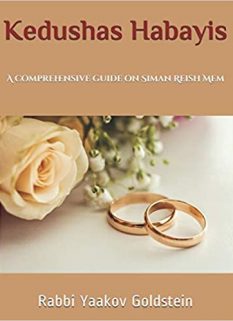
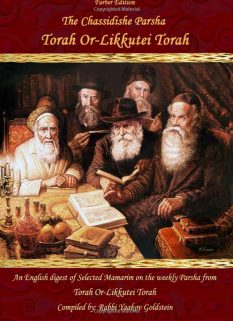
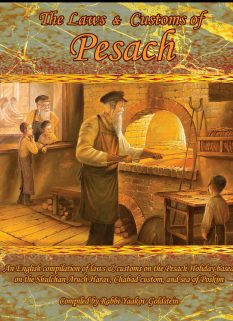
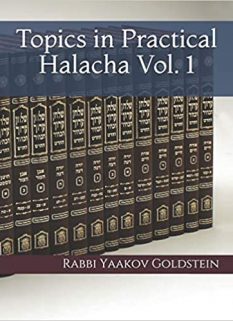
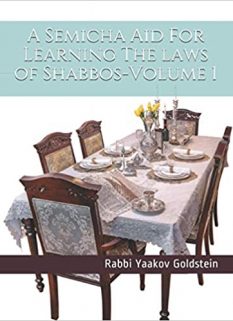
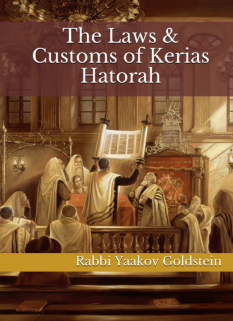
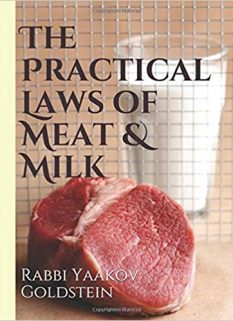
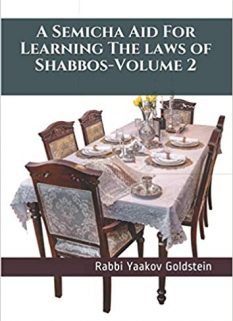

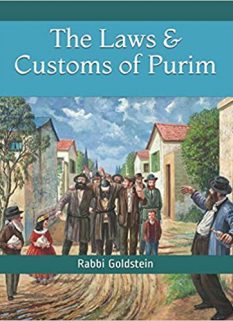
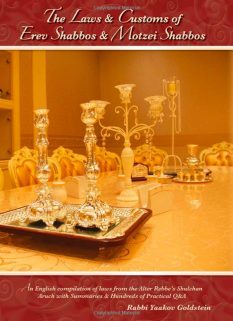
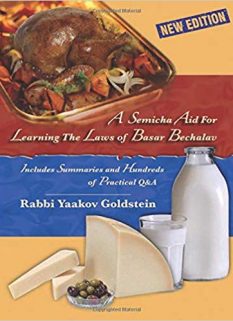
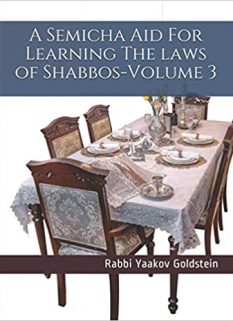
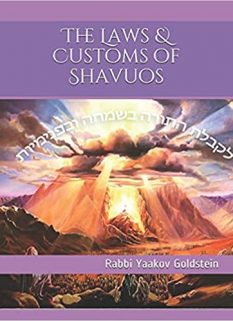

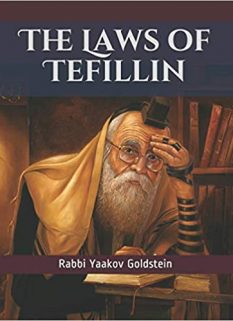
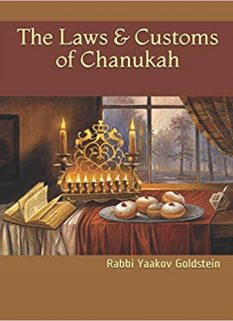

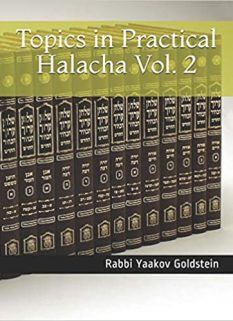
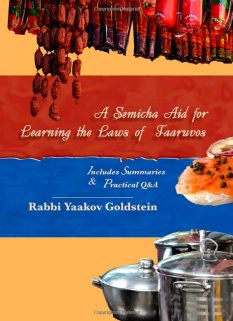
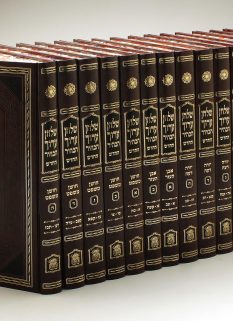
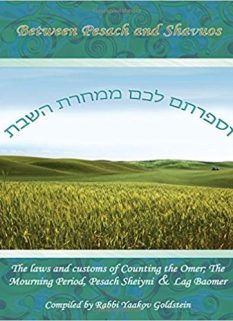
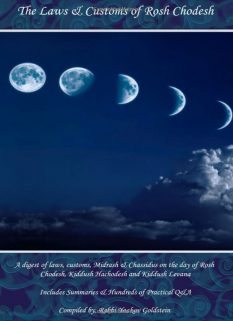
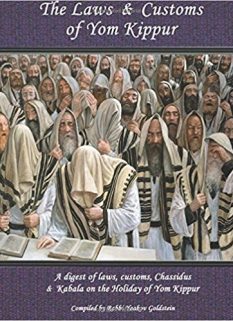
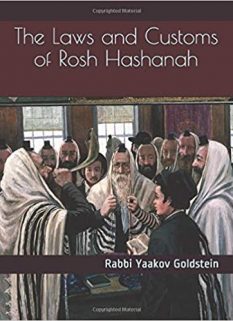
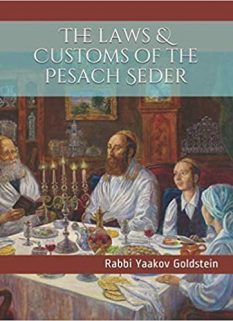


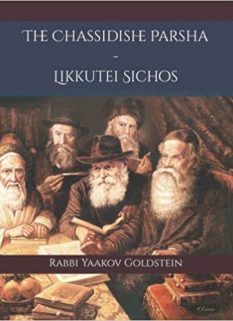
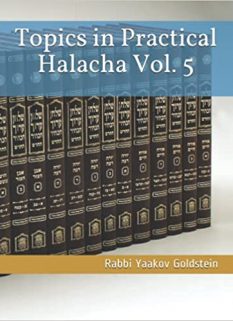
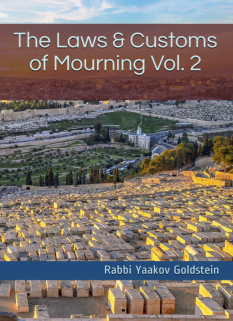
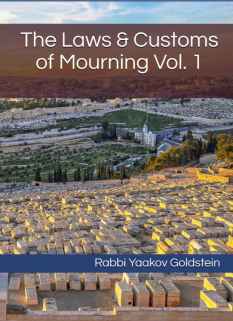
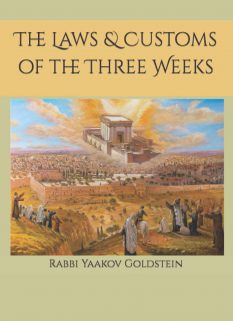
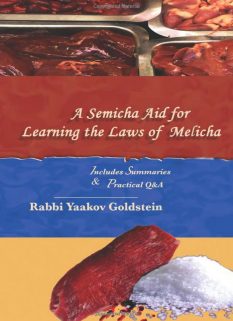
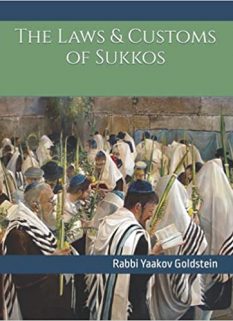

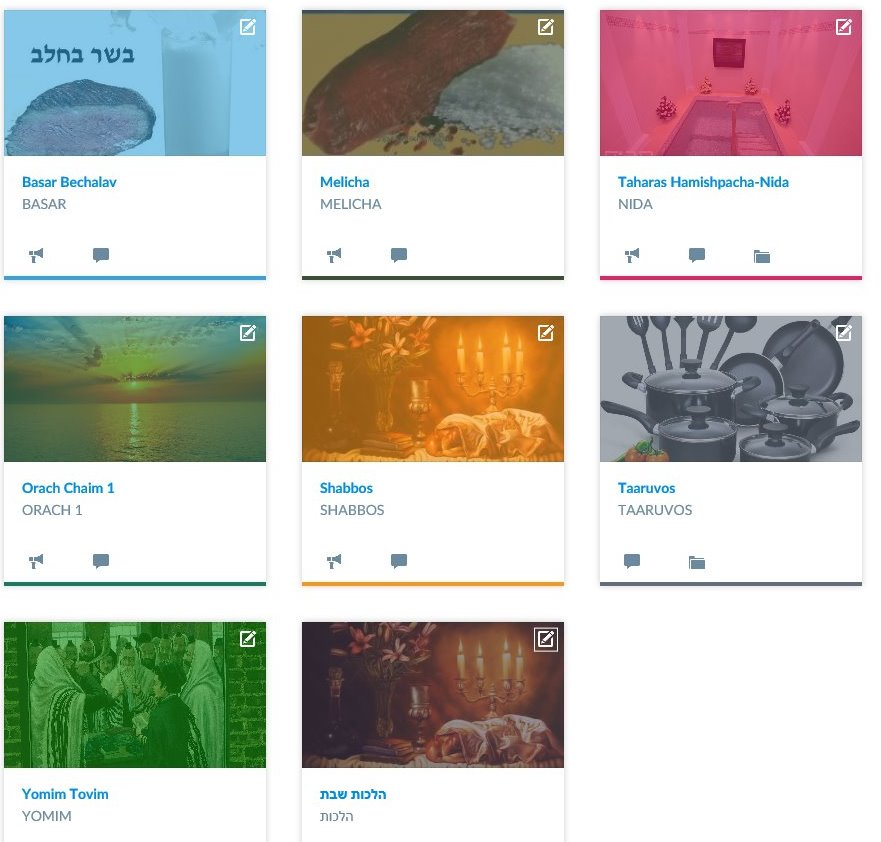

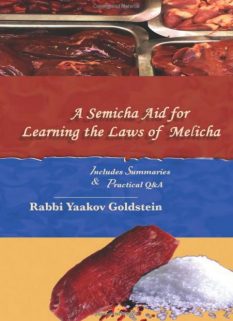
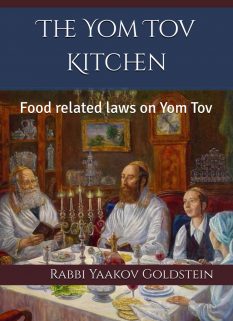
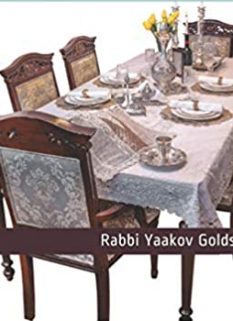
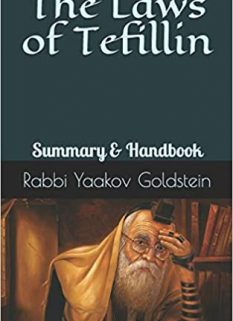
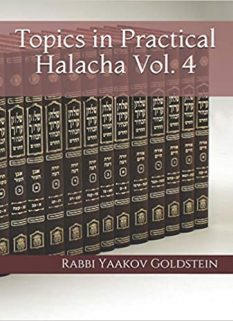
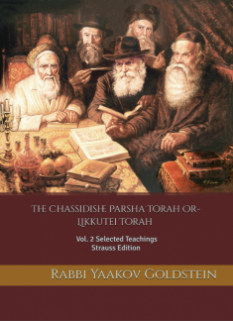
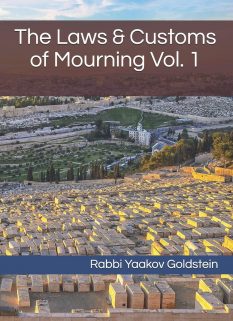

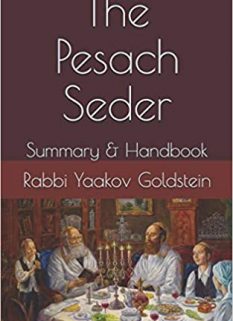
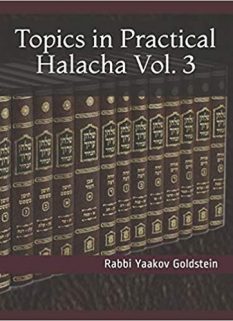

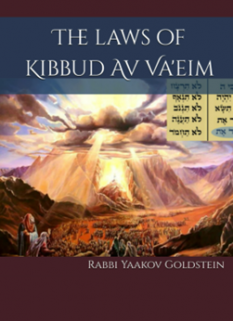

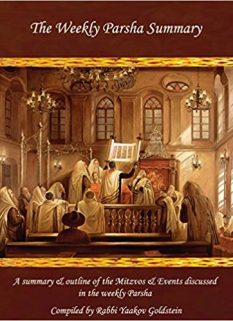

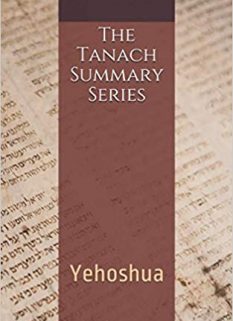
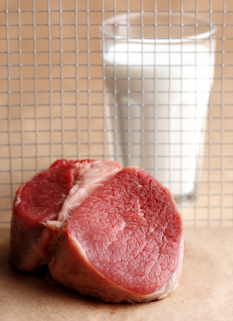
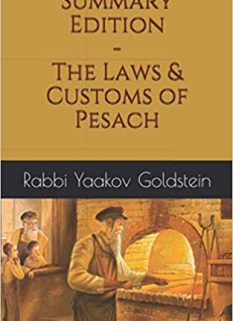
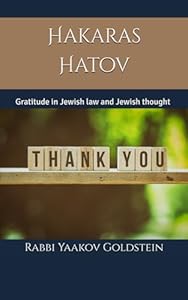
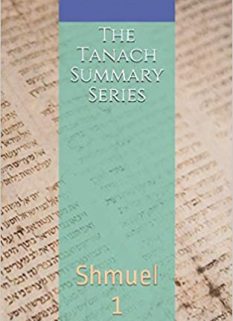


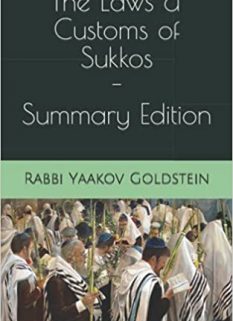
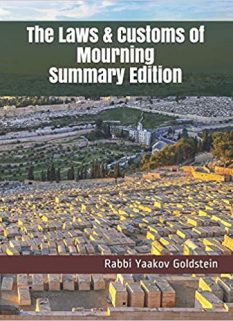

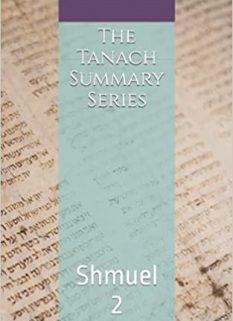




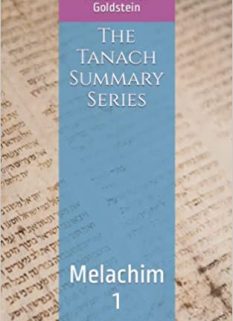
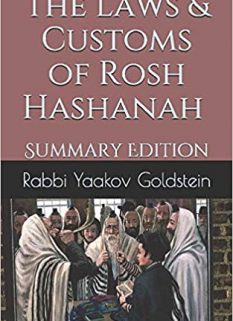

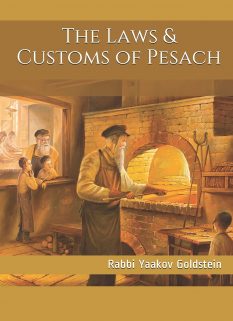


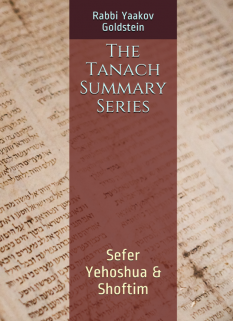


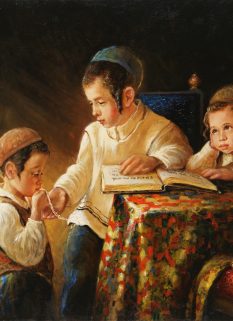


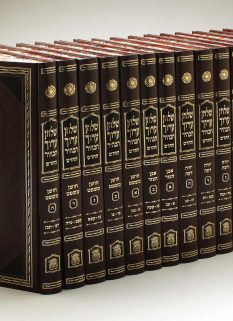

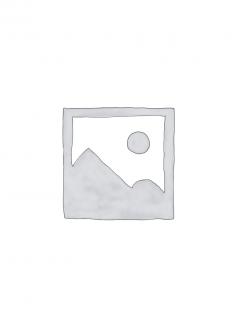

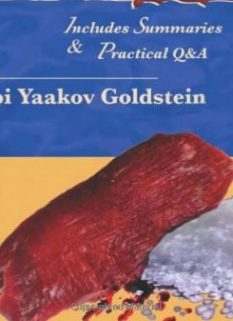

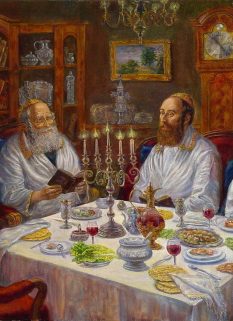

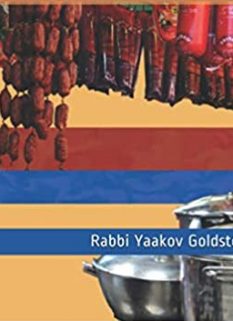
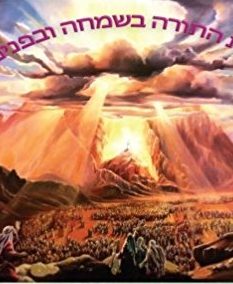
Leave A Comment?
You must be logged in to post a comment.